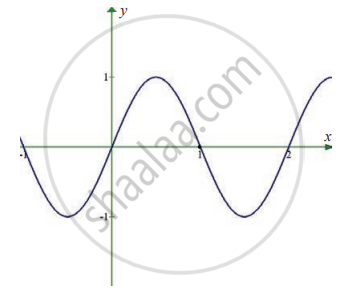Advertisements
Advertisements
प्रश्न
Evaluate the following limits:
`lim_(x -> 5) (sqrt(x + 4) - 3)/(x - 5)`
उत्तर
`lim_(x -> 5) (sqrt(x + 4) - 3)/(x - 5)`
Pu y = x + 4
⇒ x = y – 4
⇒ x – 5 = y – 4 – 5
⇒ x – 5 = y – 9
⇒ y → 5 + 4 = 9
∴ `lim_(x -> 5) (sqrt(x + 4) - 3)/(x - 5) = lim_(y -> 9) (sqrt(y) - sqrt(3^2))/(y - 9)`
= `lim_(y -> 9) (y^(1/2) - (9)^(1/2))/(y - 9)`
`lim_(x -> "a") (x^"n" - "a"^"n") = "na"^("n" - 1)`
`lim_(x -> 5) (sqrt(x + 4) - 3)/(x - 5) = 1/2(9)^(1/2 - 1)`
= `1/2 (9)^(-1/2)`
= `1/2 xx 1/(9^(1/2)`
= `1/2 xx 1/sqrt(9)`
= `1/2 xx 1/3`
= `1/6`
APPEARS IN
संबंधित प्रश्न
Evaluate the following limit:
`lim_(z -> -3) [sqrt("z" + 6)/"z"]`
Evaluate the following limit:
`lim_(y -> -3) [(y^5 + 243)/(y^3 + 27)]`
Evaluate the following limit:
`lim_(z -> -5)[((1/z + 1/5))/(z + 5)]`
Evaluate the following limit :
`lim_(y -> 1)[(2y - 2)/(root(3)(7 + y) - 2)]`
Evaluate the following limit :
`lim_(x -> 7) [(x^3 - 343)/(sqrt(x) - sqrt(7))]`
Evaluate the following :
`lim_(x -> 0) [(sqrt(1 - cosx))/x]`
Evaluate the following :
`lim_(x -> 1) [(x + 3x^2 + 5x^3 + ... + (2"n" - 1)x^"n" - "n"^2)/(x - 1)]`
In problems 1 – 6, using the table estimate the value of the limit
`lim_(x -> 2) (x - 2)/(x^2 - 4)`
| x | 1.9 | 1.99 | 1.999 | 2.001 | 2.01 | 2.1 |
| f(x) | 0.25641 | 0.25062 | 0.250062 | 0.24993 | 0.24937 | 0.24390 |
In exercise problems 7 – 15, use the graph to find the limits (if it exists). If the limit does not exist, explain why?
`lim_(x -> 1) sin pi x`
Write a brief description of the meaning of the notation `lim_(x -> 8) f(x)` = 25
Evaluate the following limits:
`lim_(x - 0) (sqrt(1 + x^2) - 1)/x`
Evaluate the following limits:
`lim_(x -> oo) (x^3 + x)/(x^4 - 3x^2 + 1)`
Evaluate the following limits:
`lim_(x -> oo) (1 + x - 3x^3)/(1 + x^2 +3x^3)`
A tank contains 5000 litres of pure water. Brine (very salty water) that contains 30 grams of salt per litre of water is pumped into the tank at a rate of 25 litres per minute. The concentration of salt water after t minutes (in grams per litre) is C(t) = `(30"t")/(200 + "t")`. What happens to the concentration as t → ∞?
Evaluate the following limits:
`lim_(x -> 0) (sinalphax)/(sinbetax)`
Evaluate the following limits:
`lim_(x -> 0) (2 "arc"sinx)/(3x)`
Evaluate the following limits:
`lim_(x -> 0) (2^x - 3^x)/x`
Choose the correct alternative:
`lim_(x -> oo) sinx/x`
Choose the correct alternative:
`lim_(x - pi/2) (2x - pi)/cos x`
Choose the correct alternative:
`lim_(x -> 0) ("a"^x - "b"^x)/x` =
